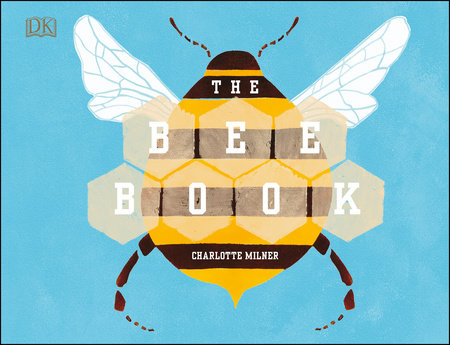10 Reasons Why Bees Are Worth Buzzing About
by Charlotte Milner
While they may be small, bees’ special relationship with plants makes them hugely important to our planet. Bees are incredibly industrious, brilliant at building, super social, and — most importantly — responsible for a third of every mouthful of food you eat! But bees are in decline across the world. It is important that we understand the world of bees not only to help support them but also because it’s a fascinating example of our natural environment at work. As you’ll see below, there are plenty of reasons to be buzzing about nature’s hardest worker.
1. There are around twice as many species of bees as there are species of birds. In fact, there are around 20,000 different species of bees. But when most of us picture a bee, a furry, black and yellow striped insect comes to mind. Yet with such an enormous variety of bees found all over the world, they can look and behave very differently. The smallest of bees is just 2 millimeters long while the largest is 20 times bigger. Some bees work alone and some, like the honeybee, work together in huge colonies.
2. Bees are the world’s top pollinators. After 100 million years of evolution, bees are the perfect pollinators. Their longstanding relationship with plants makes them perfectly adapted to recognize flowers and collect pollen; the length of a bee’s tongue is even adapted to what flower they feed on. By effectively moving pollen from flower to flower, bees allow plants to reproduce over long distances.
3. Honeybees are the ultimate social species. There are about 35,000 honeybees in a colony, all working together for the survival of the colony. There are three types of bee in a hive — workers, drones, and the queen — and each has a distinct role in keeping the colony healthy.
4. Honeybees and humans have a special relationship. Honeybees have been sweetening our lives for 13,000 years. Beekeeping has allowed us to collect and enjoy the hive’s golden treasure: honey. Even the Ancient Egyptians enjoyed the sweet reward of honeybees’ hard work and would offer honey to the gods.
5. It takes the lifetime’s work of 12 honeybees to make one teaspoon of honey. Honeybees need to store honey in order to survive the colder months, and it’s so important to the survival of the colony that worker bees spend most of their lives making honey by collecting nectar from flowers. Next time you buy honey, put some thought into the efforts that went into making it: It takes 55,000 miles of flying for honeybees to make one jar of honey!
6. In a colony, all of the workers are female. If you see a honeybee, it is most likely female. In fact, most of a colony is made up female worker bees. These busy bees have the most jobs to do, which include cleaning and guarding the nest, collecting nectar, and making honey. The male bees (drones) are only around during the summer, when they mate with a queen. Come autumn, the females kick them out of the nest.
7. The queen is the mother of every bee in the hive. A queen honeybee is responsible for populating the colony and lays up to 2,000 eggs every day. This supermom can even control whether an egg will hatch into a male drone bee or a female worker bee.
8. Honeybees communicate by dancing. A honeybee does the waggle dance to tell another bee where to find the best flowers. By walking around in loops and shaking their furry bodies, they can communicate the direction of flowers and how far away they are. From inside the dark hive, the colorful outside world is mapped out using some smart dance moves!
9. One third of the food we eat has been made thanks to pollinators such as bees. Bees are busy pollinating a huge range of plants vital to humans. Many of these plants include crops that are collected and sold as food. Without bees, mealtimes would be a lot less colorful, as we could lose many types of fruit and vegetables.
10. Bees help create habitats for birds, insects, and mammals. Not only are bees important to the production of food through pollination, they also support a huge variety of wildlife. If we take a look at the bigger picture, we see that by pollinating wildflowers, bees help to create natural areas where other animals can live and find food.
This Earth Day, you can do your part to save these remarkable creatures by planting a bee-friendly garden. Bees love gardens that are full of flowers and different plants. Plant these seeds to grow beautiful flowers, which are perfect for bees due to their rich nectar and pollen:
- Crocus
- Snowdrop
- Iris
- Lavender
- Mint
- Cornflower
- Sunflower
- Sedum
- Ivy
Learn more about bees and other ways to protect these vital critters in The Bee Book from DK.

